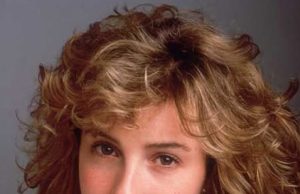
That sudden, persistent itch on your scalp that seems to get worse as the day goes on? It’s more than just a passing irritation — it’s often your scalp’s way of signaling that something’s wrong. Whether it’s stress, an imbalance in oil production, or harsh hair products, there are several possible triggers.
The good news? There are effective ways to relieve and prevent it. In this article, we’ll break down the most common causes of scalp itchiness and share practical tips to help you find relief. Ready to put an end to the discomfort?
Top Causes of an Itchy Scalp
1. Dandruff and Seborrheic Dermatitis: The Most Common Offenders
Those small, flaky white bits that often come with itching are usually dandruff, which is commonly caused by an overproduction of oil or reactions to irritating hair products. The more you scratch, the worse the inflammation tends to get.
Seborrheic dermatitis is a more serious version — a chronic condition marked by red patches and greasy, yellowish flakes. It can also affect other areas like your eyebrows, behind the ears, and around the nose.
Treatment Tips:
Use shampoos with active ingredients like ketoconazole, salicylic acid, or zinc pyrithione.
If symptoms persist for more than two weeks, consult a dermatologist for personalized care.
2. Psoriasis: When Your Immune System Turns on You

Scalp psoriasis is an autoimmune disorder where thick, scaly, red patches form and often bleed when scratched. It can be painful and hard to manage.
How to Manage It:
Apply corticosteroid-based treatments and use medicated shampoos.
In severe cases, oral medication might be needed.
Reducing stress can help keep flare-ups in check.
3. Pityriasis: Dry Spots That Come and Go
Pityriasis rosea, though less common, can show up on the scalp as a large dry patch followed by smaller ones.
What Helps:
Use moisturizing, calming lotions.
Avoid scratching to reduce irritation.
In most cases, it clears up on its own within a few weeks.
4. Fungal Infections: Persistent Redness and Itching

Conditions like ringworm (tinea capitis) cause redness, itching, flaking, and can even lead to hair loss in patches.
Steps to Take:
See a dermatologist for an accurate diagnosis.
Follow a full course of oral antifungal medication and use specialized shampoos.
Continue treatment even after symptoms fade to prevent recurrence.
5. Allergic Reactions to Hair Products: A Common Culprit
Hair dyes and chemical treatments can cause allergic reactions, leading to itching, redness, burning, and even blisters. One common allergen is PPD (paraphenylenediamine), found in many hair dyes.
Preventive Measures:
Always do a patch test before using a new hair color.
Choose natural or ammonia-free dyes if you have a sensitive scalp.
6. Sunburn: A Hidden Source of Scalp Discomfort
If your hair is thinning or you’re bald, your scalp can easily get sunburned, leading to peeling, itching, and redness.
Protect Your Scalp:
Wear a hat or cap in strong sunlight.
Use scalp-specific sunscreen sprays.
Apply aloe vera to soothe sunburnt areas.
7. Stress and Anxiety: Itching from Within

Emotional stress can lead to scalp itching due to the release of inflammatory substances in the body, a condition known as emotional or psychogenic itching.
How to Soothe It:
Practice relaxation techniques such as meditation, yoga, or breathing exercises.
Choose gentle, moisturizing scalp products.
Seek professional support if the itch interferes with daily life.
8. Lice: Still a Modern-Day Nuisance
Lice aren’t just a childhood problem — adults can catch them too, especially through close contact. The itching is often most intense behind the ears and along the neck.
Effective Treatment:
Use anti-lice shampoos and a fine-tooth comb to remove lice and nits.
Clean bedding and clothing thoroughly to prevent reinfestation.
Tips to Relieve Scalp Itching
Use gentle shampoos and avoid very hot water.
Refrain from scratching with fingernails to prevent skin damage.
Keep your scalp hydrated, especially in dry climates.
Maintain a healthy diet to support scalp and hair health.
Conclusion
An itchy scalp might seem like a minor annoyance, but it can significantly impact your comfort and well-being. Fortunately, understanding the root cause and taking the right steps can bring lasting relief. Don’t ignore the signs — with the right care, you can restore calm and comfort to your scalp.
















